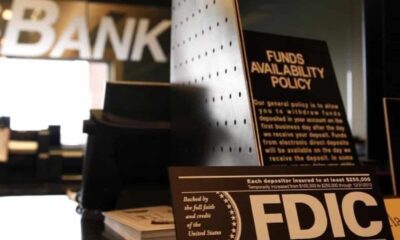Market
Binance’s Alleged Seizure of Palestinian Assets Sparks Fury


Recently, rumors have circulated on X (formerly Twitter), accusing Binance of freezing Palestinian users’ assets at the behest of the Israel Defense Forces (IDF). These rumors stem from a document allegedly from the Israeli government, which outlines an administrative seizure order linked to the Law on Combating Terrorism.
This claim has sparked significant outrage, especially given the platform’s history of compliance with Israeli law enforcement.
Suspicion Grows: Binance’s Ties to Israeli Seizures Under Scrutiny
The document, translated from Hebrew, asserts that funds were seized from crypto wallets associated with declared terrorist organizations. According to the document, Israel’s Minister of Defense authorized the seizure based on intelligence. It suggests that the funds had a connection to terrorism.
Read more: 7 Best Binance Alternatives in 2024
However, it is important to note that the translated version of the document does not explicitly mention Binance. Despite this, the crypto community has reacted strongly to these allegations. Ray Youssef, former CEO of Paxful and current CEO of the P2P marketplace Noone App, voiced his concern.
“I have received this from several sources. All Palestinians are affected, and judging by the way things are going, all Lebanese and Syrians will get the same treatment. Not your keys, not your coins […] Binance is fully compromised now,” he stated.
Youssef further shared a screen-recorded video purportedly from a Palestinian user. The video shows a message from Binance’s customer service stating that Israeli law enforcement ordered the freezing of the user’s account. This revelation has amplified the community’s distrust, leading to widespread calls for Binance to clarify its position.
While Binance has not yet responded to the current allegations, the exchange has had a history of cooperation with Israeli authorities. In May 2023, Israeli officials seized several Binance accounts linked to Hamas and the Islamic State as part of broader efforts to combat terrorism.
Since 2021, Israel has reportedly seized approximately 190 accounts connected to terrorist organizations. This includes a recent seizure of over $1.7 million in cryptocurrency linked to Hezbollah.
Binance’s compliance with these actions has drawn both praise and criticism. Some view the platform as a responsible actor in global security, while others see it as complicit in geopolitical conflicts.
Crypto’s Wake-Up Call: Not Your Keys, Not Your Coins
Should the rumor be true, it could potentially drive more users toward decentralized platforms, where they have greater control over their assets. Furthermore, the consequences could extend beyond the crypto industry—it might also expose Binance to the risk of being targeted by the global Boycott, Divestment, and Sanctions (BDS) movement.
The BDS movement, which emerged in 2005 from Palestinian civil society, seeks to challenge Israel’s policies towards Palestinians through economic and political pressure. It calls for boycotts, divestments, and sanctions against Israeli companies and those perceived as complicit in supporting Israel’s actions.
For Binance, this could lead to significant reputational damage, particularly in regions where support for the Palestinian cause is strong. Additionally, the exchange might face economic consequences, as boycotts might lead to a decline in users and increased scrutiny from regulators in jurisdictions sympathetic to the BDS movement’s goals.
Although rumors surrounding Binance’s alleged seizure of Palestinian assets highlight the broader geopolitical tensions between Israel and Palestine, for many in the crypto community, this incident serves as a stark reminder of the risks associated with centralized exchanges. The phrase “not your keys, not your coins” has never been more relevant, as users are urged to maintain control over their assets rather than relying on third-party platforms.
Read more: Binance Review 2024: Is It the Right Crypto Exchange for You?
Crypto influencer Autism Capital encapsulated this sentiment, issuing a warning to users. They highlighted that if individuals do not control their own crypto keys, their assets could be at risk of seizure.
“It doesn’t matter the exchange or the government that requests it; an exchange will comply with the request. If you think having assets frozen is just for others, it isn’t. One day, it will come for you. Use crypto as intended. Hold your assets, don’t give your power away and then cry later,” Autism Capital said.
Disclaimer
In adherence to the Trust Project guidelines, BeInCrypto is committed to unbiased, transparent reporting. This news article aims to provide accurate, timely information. However, readers are advised to verify facts independently and consult with a professional before making any decisions based on this content. Please note that our Terms and Conditions, Privacy Policy, and Disclaimers have been updated.












